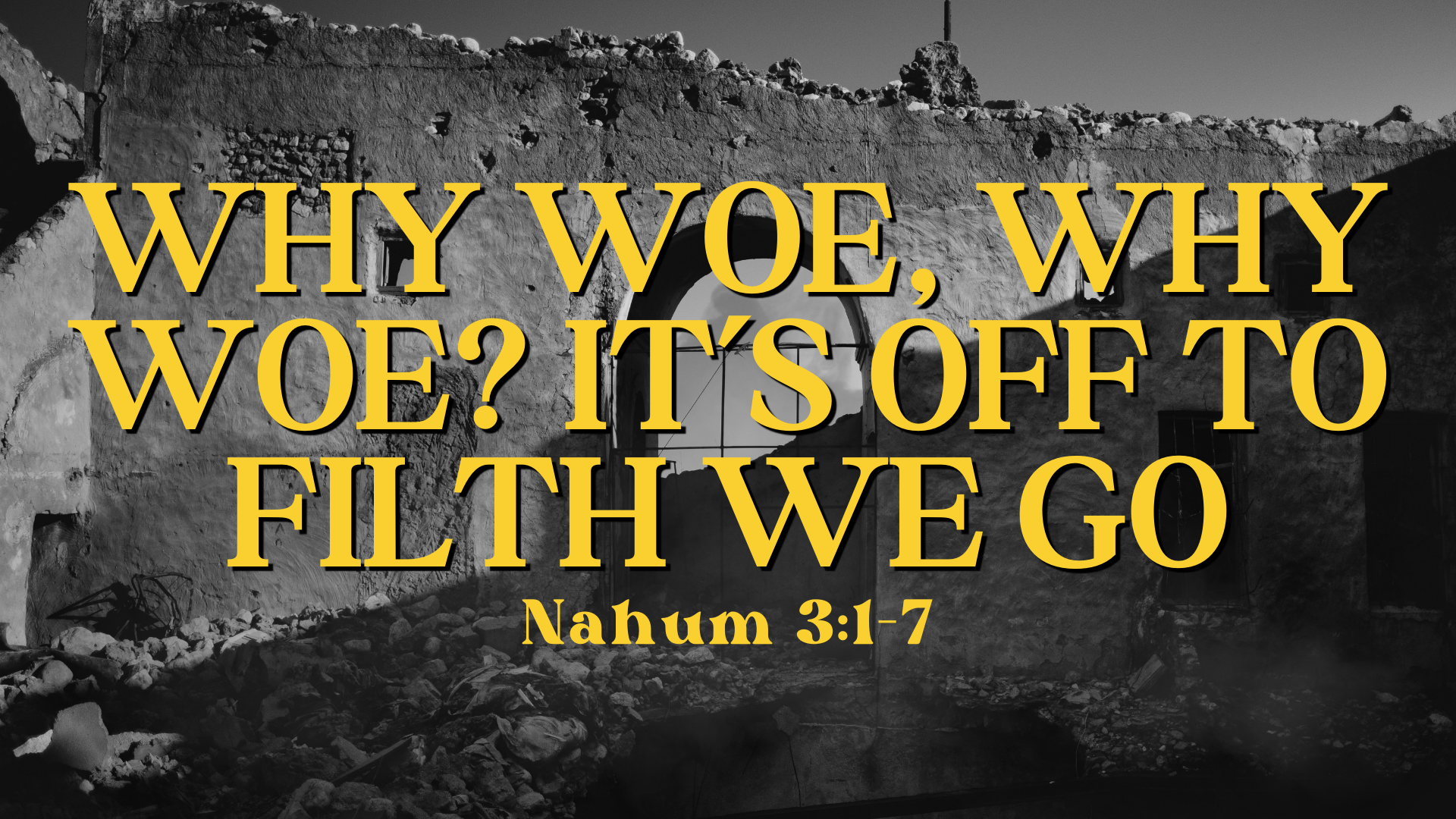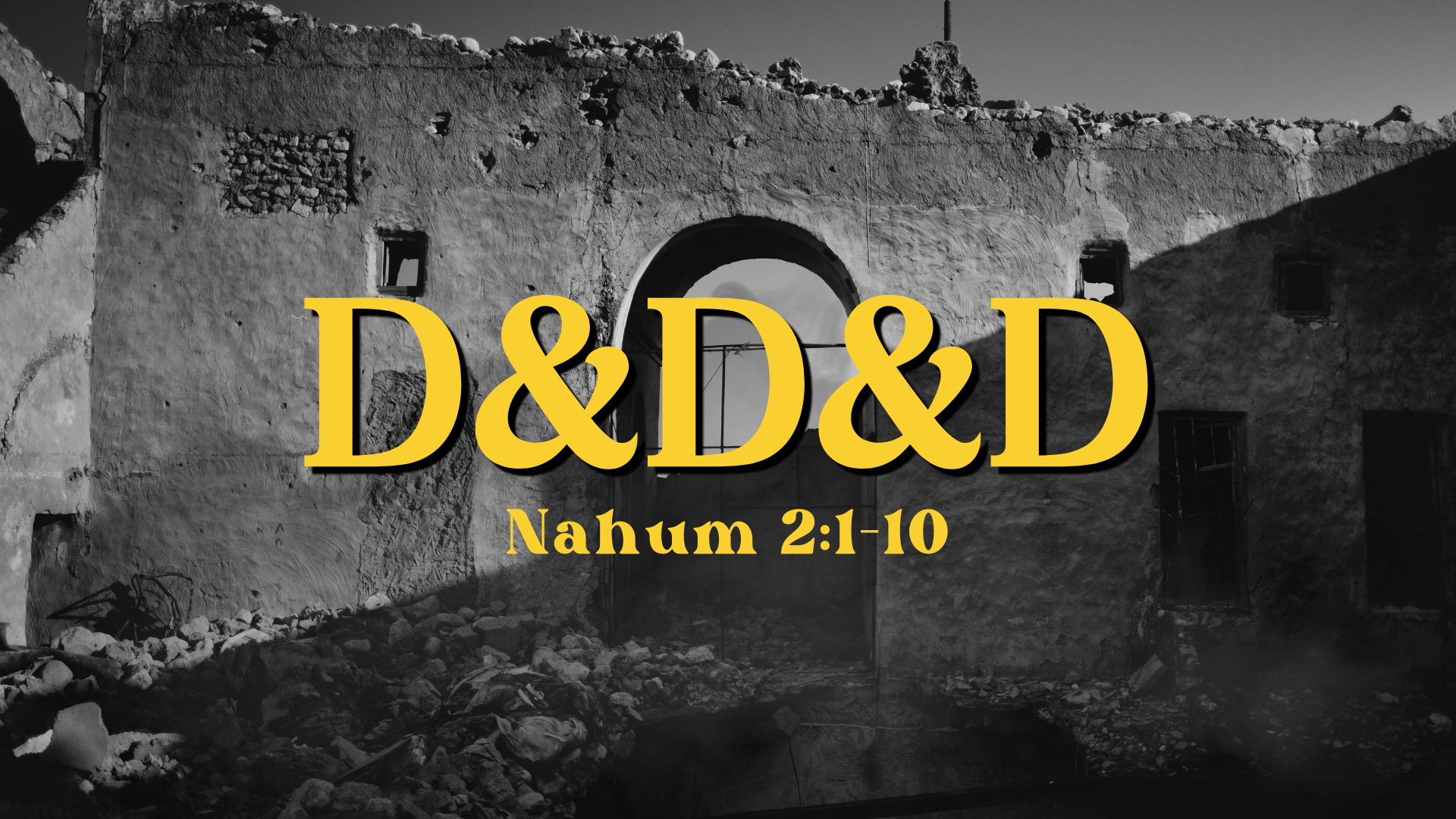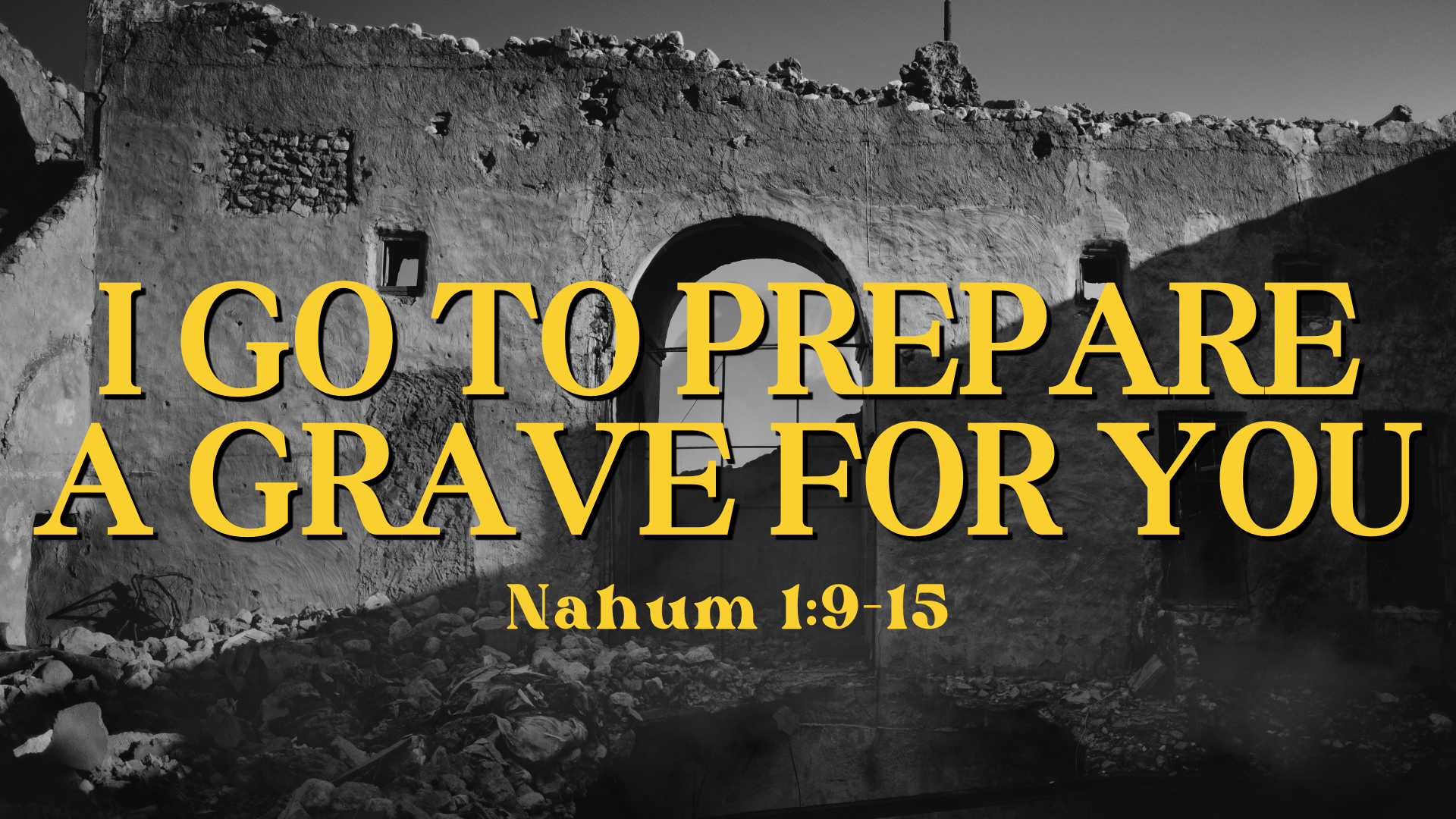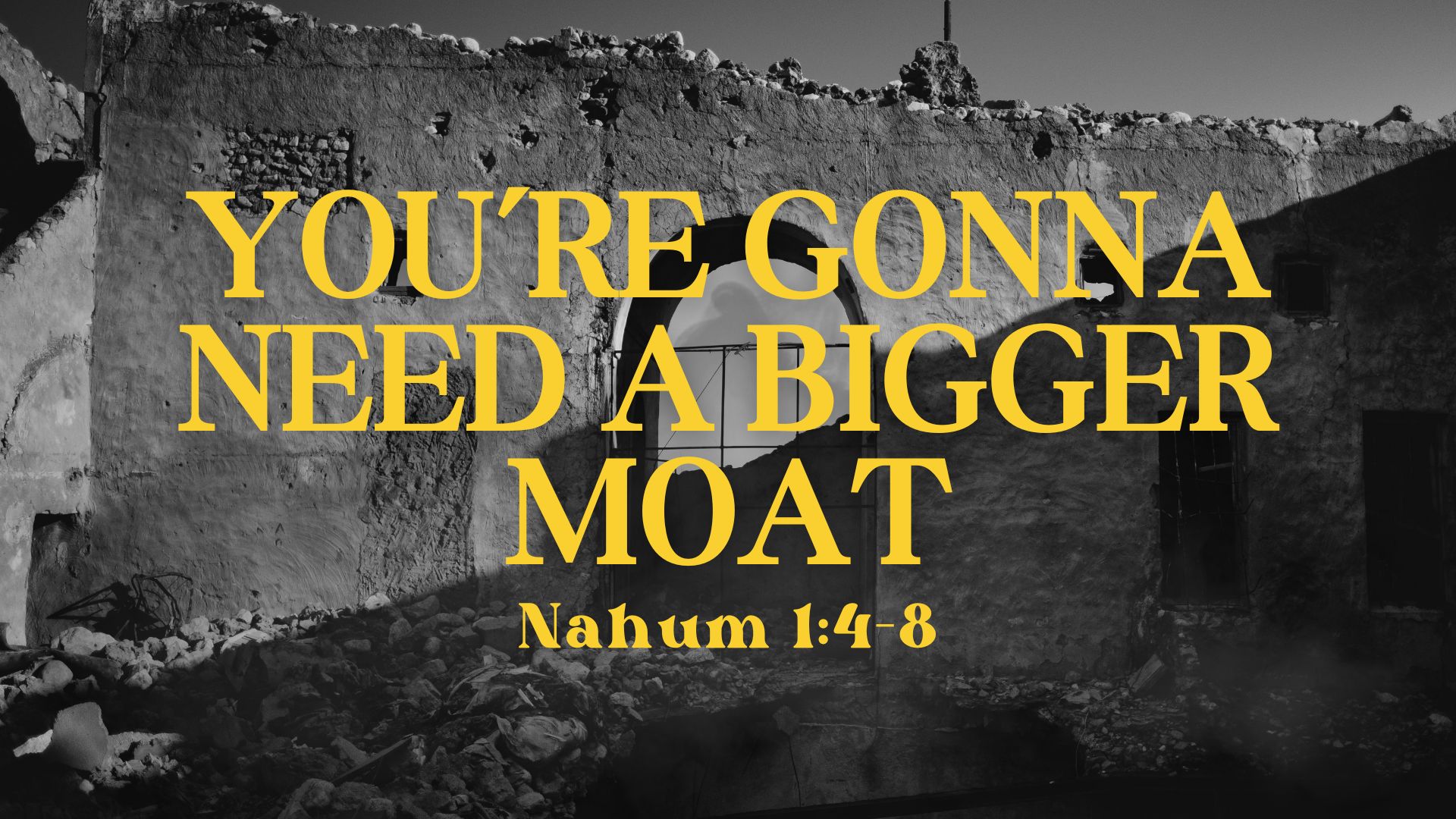
Death Of A Nation (Nahum 3:8-19)
Hundreds of years before Columbus discovered the new world, the city of Cahokia was one of earth’s great metropolises. It was built in what is now southern Illinois, just west of modern day St. Louis, and inhabited by a people group that modern researchers call the “Mississippians.”
Cahokia was an impressive city. Its residents built hundreds of mounds with buildings on top for various purposes. The tallest is known as Monk’s Mound, standing 10 stories high. It was probably the tallest manmade structure in America until the introduction of steel skyscrapers in the late 1800s.[1] The city was carefully designed, with “perfectly laid out streets.” It was also home to what is called “Woodhenge” – like Stonehenge, but with cedar poles. This celestial monument has been partially rebuilt as archaeologists attempt to understand the Mississippian religion and culture.
Cahokia’s size and population rivaled the capitals of Europe at the time. In fact, it was home to more people than London or Paris. It’s been called an “early-day Manhattan.”[2] But, it has also been described as an American Atlantis. After standing as a major urban area for centuries, by 1350 AD, this metropolis was abandoned and no on knows why. It joined the list of mysterious, lost cities.
The fall of Nineveh is one of the most dramatic political events ever. Historians at Cambridge University wrote, “The disappearance of the Assyrian people will always remain an unique and striking phenomenon in ancient history.”[3]
It seemed like an impossibility to Assyria’s rulers and her enemies. But, as Nahum brought his book to a close, he makes it clear that it could happen and it would happen – no matter what.
Nahum 3:8 – 8 Are you better than Thebes that sat along the Nile with water surrounding her, whose rampart was the sea, the river her wall?
Thebes was the capital of Egypt. It has been called the world’s “first, great monumental city”[4] – a landmark for 1,400 years.[5] It was home to the Avenue of Sphinxes and the Luxor Temple. More importantly, it was considered to be invincible. Because of its position on the Nile, because of its fortifications, it was commonly believed that no army could ever conquer the city of Thebes.
Then the prophets Jeremiah and Ezekiel let the world know, “That city is going down.” And in 663 BC, the “impossible” happened. Ashurbanipal brought his army down and destroyed Thebes.
Now, Nineveh was a strong city – it also had walls, towers, moats, and a river with its tributaries. But, everyone knew that Egypt’s capital was even more protected than Assyria’s capital, yet it had fallen.[6] And it fell to Ashurbanipal, the king during Nahum’s time. So this example is quite timely.
Nahum 3:9 – 9 Cush and Egypt were her endless source of strength; Put and Libya were among her allies.
Thebes had many friends. In fact, she was protected by allies on the north, the south, the east, and the west.[7] Assyria had no allies, only subjugated enemies. No one was going to come to her aid when attacked. In fact, as we’ll see, everyone was quite happy to see her get what was coming.
So Nahum is driving home this point to Nineveh: You think you’re safe, but you’re not. You think you have fortifications and defenses, you think you can handle your business, but you’re totally wrong because no one can stand against the Lord when He comes in wrath.
And this is an important principle for any people, any society to take to heart: It doesn’t matter how much wealth you have, how many allies your have, your defenses, your geography, your size, your importance on the world stage. None of that matters if you don’t walk with the Lord. It can all be swept away in a moment. Any city, any nation, can join the list of ‘nations that used to exist.’ None of your strengths matter if you don’t have a relationship with the Living God.
Nahum 3:10 – 10 Yet she became an exile; she went into captivity. Her children were also dashed to pieces at the head of every street. They cast lots for her dignitaries, and all her nobles were bound in chains.
Our leaders seem determined to get us involved in one war or another. A verse like this gives a terrifying glimpse of the horrors of battle. We don’t want war. Sometimes war between nations is necessary, but it shouldn’t be something we desire or get excited about.
The Assyrian Kings Esarhaddon and Ashurbanipal tried to show restraint toward Egypt. Egypt was way out on the edges of Assyria’s grasp – the very bottom corner of their empire. But Thebes kept vacillating in its allegiance. But, finally, after yet another insurrection, Ashurbanipal’s patience was exhausted and he “razed [Thebes] to the ground.”[8]
Now the Lord was sending them a message, “Hey, I’ve been patient for centuries. I keep waiting for you to get on board and you just won’t, so now the war hammer is coming down.”
Nahum 3:11 – 11 You also will become drunk; you will hide. You also will seek refuge from the enemy.
We’ve heard in earlier studies how drunkenness played a major factor in the fall of Nineveh. But Nahum is also writing poetically of how the Assyrians would have to drink the cup of God’s wrath. This is a common metaphor in the Bible. Psalm 75 pictures God pouring out judgment and it says, “God is the Judge: He brings down one and exalts another. For there is a cup in the Lord’s hand, full of wine blended with spices, and he pours from it. All the wicked of the earth will drink, draining it to the dregs.”[9] In Jeremiah we read:
Jeremiah 25:15 – 15 This is what the Lord, the God of Israel, said to me: “Take this cup of the wine of wrath from my hand and make all the nations to whom I am sending you drink from it.
This is the judgment that wicked nations and wicked people deserve – what you and I deserve. But what did Jesus do? In the Garden of Gethsemene He prayed to the Father and said, “I am willing to drink from this cup.” He was willing to drink it for us so that we don’t have to – so we can be rescued from judgment, just like any Ninevite who believed Nahum’s message could escape what was coming if they went to the Lord for refuge.
But they were seeing refuge behind moats, behind walls, in the temples of false gods. And that meant they would have to drink the cup of God’s wrath.
Nahum 3:12 – 12 All your fortresses are fig trees with figs that ripened first; when shaken, they fall—right into the mouth of the eater!
One translator points out how little effort will be needed to topple Nineveh – just “a little shake.”[10] We had a fig tree at our first house. It was amazing to see how fragile the fruit was when it was ripe. One day they’d be green on the tree, the next they were all black on the ground. A little wind, a little bump brought them down. That’s what was going to happen to the world’s most powerful city.
Nahum 3:13 – 13 Look, your troops are like women among you; your land’s city gates are wide open to your enemies. Fire will devour the bars of your gates.
The Lord isn’t bad-mouthing ladies here. The reality is that these were not the kind of armies that had female combatants. They weren’t trained to fight. They weren’t outfitted for defense. God is telling them that their ultra-fierce, elite soldiers would not be a factor at all, just like their gates wouldn’t be a factor. In fact, the gates were going to be burned as fuel.
Archaeology testifies that fire was a great instrument in the destruction of Nineveh.[11] God means what He says and He always gets prophecy right.
Nahum 3:14-15 – 14 Draw water for the siege; strengthen your fortresses. Step into the clay and tread the mortar; take hold of the brick-mold! 15 The fire will devour you there; the sword will cut you down. It will devour you like the young locust. Multiply yourselves like the young locust; multiply like the swarming locust!
Nahum closes with one more taunt. “Go ahead. Make as many bricks as you want. Fortify the walls as thick as you can. It won’t matter.” What good is mud against fire? Against a flooding river? They’re no good at all. John Goldingay writes, “Any Israelite knows that a decent fortification is made of rock.”[12]
They needed to hide themselves in the Rock, not in the mud. Humans were made from what? The dust of the earth. When we try to build our lives on human principles, with human fortifications and security, it’s just like the little pigs who were making their house out of straw. We need to build on the Rock, to hide ourselves in the Rock. Otherwise, our lives will ultimately be devoured.
Nahum 3:16-17 – 16 You have made your merchants more numerous than the stars of the sky. The young locust strips the land and flies away. 17 Your court officials are like the swarming locust, and your scribes like clouds of locusts, which settle on the walls on a cold day; when the sun rises, they take off, and no one knows where they are.
Nahum continues using locust imagery. The Ninevites would say, “Look at all the people we have! Look at all the soldiers, all the officials, all these different figures which make Assyria strong.” And the Lord says, “Yeah, lots of people. It’s gonna be like shooting fish in a barrel.”
Yes, Nineveh had many soldiers and officials and merchants, but they lived for self. They were locusts, not sheep. Locusts devour. Locusts can cause a lot of trouble, but also have great frailty. A little cold makes them all freeze up and unable to move. When the sun finally comes back out, they just take off – every locust for itself.
Assyria was militarily strong, academically strong, economically strong, but their society was based on greed, selfishness, personal pleasure. When the moment of testing came, it all crumbled.
As Christians, we’re not called to be locusts, we’re called to be sheep. We’re a flock living and moving together and bearing with one another and sharing kindness and affection with each other.
Nahum 3:18 – 18 King of Assyria, your shepherds slumber; your officers sleep. Your people are scattered across the mountains with no one to gather them together.
After 3 chapters, Nahum finally addresses the king himself. William Brown writes, “The king of all people is the last to know that his power has been pulled out from under him.”[13] It’s as if Nahum enters the throne room where this despicable sovereign is sitting and he says, “You know, your troops, your academics, your lawyers, your officials, your commanders, your shepherds, your nobles, and your builders are all taking a dirt nap while your city burns.” This was the king who called himself “the king of the universe.”[14] Soon he wouldn’t be the king of anything.
Nahum 3:19 – 19 There is no remedy for your injury; your wound is severe. All who hear the news about you will clap their hands because of you, for who has not experienced your constant cruelty?
There are a lot of conflicts going on in the world today. All of them have supporters on either side. When Nineveh came down everyone was happy about it. Three continents had been pummeled with their brutality for hundreds of years. The Assyrians were constantly cruel. Another translation is “unceasingly evil.”[15] And that’s why judgment finally came. They would not turn from their evil and receive God’s mercy.
The truth is, God did not want to kill these people. As Charles Feinberg points out, “God delights to bless and only judges when He must.”[16]
Nineveh’s destruction would be total and lasting. Thebes has been rebuilt. You can take a cruise ship there, visit the temples and the markets. Not Nineveh.
Perhaps it was God’s judgment that wiped Cahokia off the map. We don’t know. We do know there seemed to be significant practices of human sacrifice in the city.[17] Whoever the Mississippians were, they weren’t going God’s way.
Did you know that just two books of the Bible end with a question?It’s Nahum and Jonah. Both of them are focused on Nineveh. In Jonah, the Lord asks, “So may I not care about the great city of Nineveh?” He did care and He not only wanted the Ninevites to know it, He wanted Jonah and the Israelites to know it, too.
But here we are, 100 years later in Nahum’s time. Now the question is, “Who has not experienced your constant cruelty?” And the underlying question along with that is, “Shouldn’t I, a caring and holy and just God, do something about it?”
God loved the Assyrians. But He must judge wickedness. He will even judge His own, special people when they live apart from His ways. The threats made in this passage to Nineveh would be repeated to Jerusalem in Lamentations and Obadiah and elsewhere. We’ve seen in earlier studies how God’s people were following these Assyrian ways and the result was wrath.
As we wrap up our study of this book for the time being, there are some important takeaways for us to apply to ourselves. The first is to take God seriously. What He says matters and obeying Him matters for people and for nations.
The second is that, if we’re taking God seriously, we will take His values seriously. How does God want us to relate to others? How does He want us to relate to culture?
Given what we’ve learned about Assyrian life, we might ask ourselves: How am I decorating my life? What are my ambitions? Do I think of myself as god over my life or have I really surrendered to the God of the Bible Who has revealed Himself to me? Am I orienting my life around His values, His leading, His principles? Or am I connecting parts of my life to the world’s culture, hoping to get some of what the world offers?
Looking at Nahum and the various peoples listed, we see they were all culpable in this sin. It wasn’t just one king. It was everyone, from the laborers on up. So, in the nation I find myself in, what is my part to play in helping my nation be righteous?
God sent the prophet Jeremiah to His own people with a very similar message as we’ve seen in Nahum. In chapter 5 the Lord says something interesting.
Jeremiah 5:1- Roam through the streets of Jerusalem. Investigate; search in her squares. If you find one person, any who acts justly, who pursues faithfulness, then I will forgive her.
You may not be a king or a city official, you may not be the commander of an army or the keeper of the library, but your life does matter when it comes to the righteousness of your city, of your nation. We are in position to be salt and light – to help turn our nation away from judgment. We can’t make others do what’s right, but we can do what’s right. We can keep our vows to the Lord. We can celebrate His goodness. We can proclaim His truth, even if culture laughs. We know the Lord has the last laugh and we want to faithfully, righteously pursue Him for our good, for His glory, and for the sake of the people He has placed us amongst.
| ↑1 | https://www.youtube.com/watch?v=esqXKnIC_MM |
|---|---|
| ↑2 | https://www.theguardian.com/cities/2016/aug/17/lost-cities-8-mystery-ahokia-illinois-mississippians-native-americans-vanish |
| ↑3 | The Cambridge Ancient History |
| ↑4 | The Expositor’s Bible Commentary ,Volume 7: Daniel And The Minor Prophets |
| ↑5 | The New American Commentary Volume 20: Micah, Nahum, Habakkuk, And Zephaniah |
| ↑6 | ESV Study Bible Notes |
| ↑7 | The Bible Knowledge Commentary |
| ↑8 | EBC |
| ↑9 | Psalm 75:7-8 |
| ↑10 | Robert Alter The Hebrew Bible: A Translation With Commentary |
| ↑11 | Henry Rawlinson The History Of Herodotus |
| ↑12 | John Goldingay, Pamela Scalise Minor Prophets II |
| ↑13 | William Brown Obadiah Through Malachi |
| ↑14 | Gordon Johnston Nahum’s Rhetorical Allusions To The Neo-Assyrian Lion Motif |
| ↑15 | ESV Study Bible Notes |
| ↑16 | Charles Feinberg Jonah, Micah, And Nahum |
| ↑17 | https://www.youtube.com/watch?v=PS1TD6WFNeQ |





